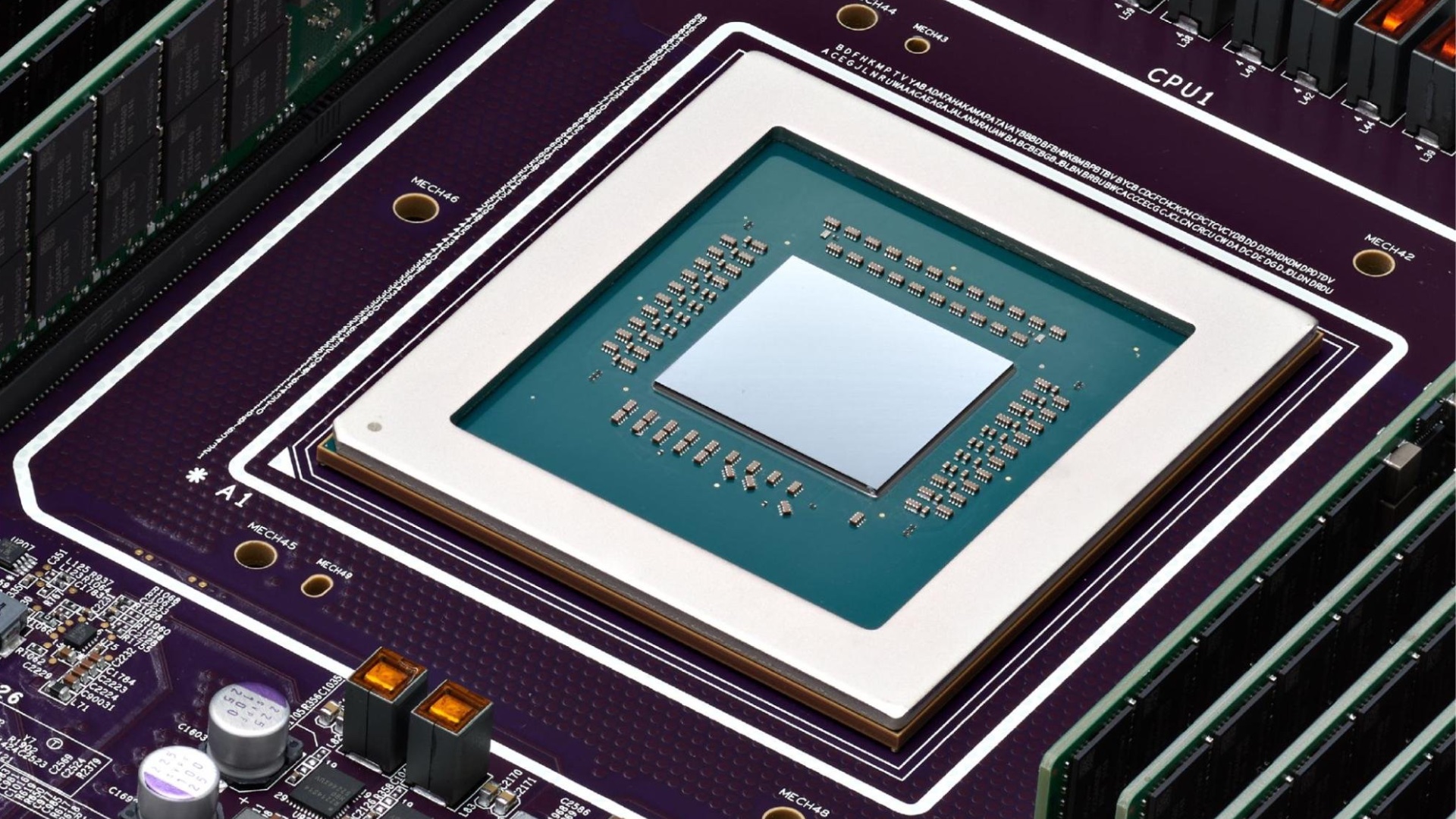As Apple's artificial intelligence plans take shape, Google announces its own custom AI chips for cloud servers and more
The AI focus continues.

While a lot of the talk right now is about Apple's AI plans for the future, including an expected big unveiling of new features at WWDC 2024, Google has today announced its own AI initiative. But this isn't about bringing AI features to future Pixel phones — Google has already done a pretty good job of that to date — but rather about setting the company up to be at the forefront of server-based AI technology for years to come.
The announcement, Google's new Arm-based AI chip called Axion, is designed to ensure that the company is at the forefront of AI processing power in data centers everywhere. Initially used to support Google's own services like Google Earth and YouTube ads, the chips will eventually roll out as options for Google Cloud business customers later this year.
Google says that its Axion CPU promises around 30% better performance than so-called “general-purpose Arm chips” and 50% more than Intel’s existing options. That's a lot of big talk, and right now we wouldn't put it past Google to be on the money here. The company is very much ahead of Apple and much of the competition in the world of not only AI but server-based computing and services. And the Axion CPU could prove to be a real boost for the future.
Arm-based AI
Announced via a blog post, Google Axion is built on years of work that has seen the company launch five generations of Tensor Processing Units (TPU) since 2015. Axion is Google's first custom Arm-based CPU, with the company saying that they deliver "industry-leading performance and energy efficiency."
Google's blog post gets into the weeds about how Axion is put together, and it's clear that there is plenty of excitement for what the custom silicon can do.
"Built using the Arm Neoverse V2 CPU, Axion processors deliver giant leaps in performance for general-purpose workloads like web and app servers, containerized microservices, open-source databases, in-memory caches, data analytics engines, media processing, CPU-based AI training and inferencing, and more," Google explains.
But much like Apple, Google says that performance isn't the only reason these new AI chips are important — it's all about saving the planet, too.
Master your iPhone in minutes
iMore offers spot-on advice and guidance from our team of experts, with decades of Apple device experience to lean on. Learn more with iMore!
"Beyond performance, customers want to operate more efficiently and meet their sustainability goals," Google explains. "Google Cloud data centers are already 1.5X more efficient than the industry average and deliver 3X more computing power with the same amount of electrical power compared with five years ago. We’ve set ambitious goals to operate our offices, campuses, and data centers on carbon-free energy, 24/7, and offer tools to help you report on carbon emissions. With Axion processors, customers can optimize for even more energy-efficiency."
The rest of the blog post includes plenty of testimonies from companies that use Google's cloud services and seem very excited about what Axion can do for them.
Google is putting its money where its mouth is, too. Axion chips are ready to go now, offering improved performance and up to 60% better energy efficiency. As a result, the company has "already started deploying Google services like BigTable, Spanner, BigQuery, Blobstore, Pub/Sub, Google Earth Engine, and the YouTube Ads platform on current generation Arm-based servers and plan to deploy and scale these services and more on Axion soon."
As for Apple, it's thought to be talking to Google about using its generative AI technology in iOS 18 and beyond, so it's possible iPhone users could still benefit from Google's big announcement in some small way, too.
More from iMore

Oliver Haslam has written about Apple and the wider technology business for more than a decade with bylines on How-To Geek, PC Mag, iDownloadBlog, and many more. He has also been published in print for Macworld, including cover stories. At iMore, Oliver is involved in daily news coverage and, not being short of opinions, has been known to 'explain' those thoughts in more detail, too. Having grown up using PCs and spending far too much money on graphics card and flashy RAM, Oliver switched to the Mac with a G5 iMac and hasn't looked back. Since then he's seen the growth of the smartphone world, backed by iPhone, and new product categories come and go. Current expertise includes iOS, macOS, streaming services, and pretty much anything that has a battery or plugs into a wall. Oliver also covers mobile gaming for iMore, with Apple Arcade a particular focus. He's been gaming since the Atari 2600 days and still struggles to comprehend the fact he can play console quality titles on his pocket computer.
